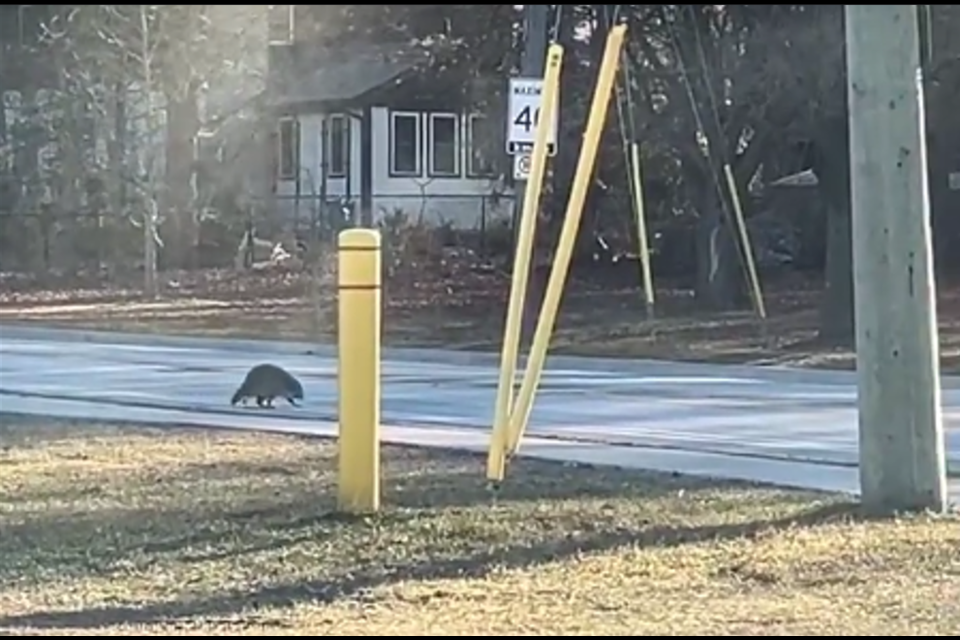Newmarket resident Helen Gray was followed by a peculiar creature as she made her way through Haskett Park with her dogs.
In November, she said her dogs came upon a raccoon, who was unperturbed as the dogs examined it.
After that, the raccoon started to follow them along the trail, seemingly keen on the interaction.
“Like another dog, he was following along,” she said. “He’s quite a character.”
The Queen Street community and Newmarket animal control are trying to get their hands on the friendly raccoon, which Gray has named Walter. After several strange interactions in the past few months, which included the raccoon trying to get in people’s vehicles and staying motionless on the road, Walter has received plenty of discussion and concern as people fear he is not well.
Area resident Maxine Sass has tried to capture Walter for weeks, with him often appearing in her backyard, to transport him to a wildlife facility. She said she is seasoned with wildlife rescue and that the raccoon likely has distemper, a fatal virus for raccoons that impacts their brain and spine.
“The raccoon rehab is seeing distemper at alarming numbers,” she said, noting there is no cure for it. “Rehab says the most humane thing is to put this poor baby down … his behaviour is not normal.”
The Oakville and Milton Humane Society describes distemper as a canine virus that also affects raccoons, but cannot be transferred to humans.
“Once a raccoon is infected, there is little to no chance of survival for the animal,” the society said on its website. “ It can take several weeks for the disease to run its course in the raccoon. Young raccoons are most susceptible to this virus.”
Newmarket Animal Services and parking acting supervisor Jacob Brewer confirmed they received a tip about the raccoon Jan. 4 and are seeing if they can locate it.
"Once the animal is located, an assessment will be conducted by one of our animal services officers to determine the raccoon’s condition," Brewer said.
Brewer confirmed distemper has a 100 per cent fatality rate in raccoons if not treated before the onset of symptoms. Those symptoms can include disorientation, aimless wandering and mucus discharge in the eyes and nose.
"Unfortunately, in these cases, humane euthanasia is the most compassionate outcome for wildlife that have been assessed and determined to have canine distemper," he said. "Animal services staff are trained to identify multiple indicators when identifying sickness or injury. Whenever uncertain of the root cause of an animal’s condition, town staff will seek the expertise of wildlife rehabbers to assist in the accurate assessment of an animal. "
Brewer advised residents to contact animal services if they witness sick animals and to avoid potential encounters by limiting food and water sources. You can call animal services at 905-895-5193 and press 3 if calling after hours.
Gray holds out hope that Walter may not be sick, with him looking healthy and big when she has seen him.
“I feel sorry for him,” she said. “If he is sick, then I feel like it is the town’s responsibility, especially if he has distemper and he’s hanging around parks.”
Regardless of the outcome, Gray said she hopes Walter can get the help he needs.
“He’s kind of a local celebrity now. Many, many people have spotted him,” she said. “My hope is the community helps the town trap him and get him, either get him help, or if he’s healthy, get him to a place where he’ll be safe. I would hate to see him get run over.”



